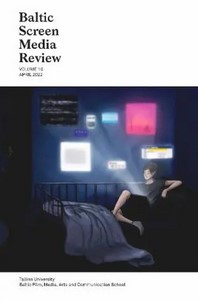“You Won’t Even Know Who You Are Anymore”: Bakthinian Polyphony and the Challenge to the Ludic Subject in Disco Elysium
“You Won’t Even Know Who You Are Anymore”: Bakthinian Polyphony and the Challenge to the Ludic Subject in Disco Elysium
Author(s): Daniel Vella, Magdalena CieleckaSubject(s): Visual Arts, Psychology of Self, ICT Information and Communications Technologies
Published by: Tallinna Ülikooli Balti Filmi- ja Meediakool
Keywords: Disco Elysium; unified and coherent self; subjectivity; Bakthinian Polyphony;
Summary/Abstract: When approaches to the notion of the ‘self’ as it exists in the game have been discussed in game studies – for instance, through work in existential ludology or through discussions of agency – the ‘self’ in question, explicitly or implicitly, has tended to be the rational, stable, unified and coherent self of the humanist tradition. By fracturing the ludic subject into a set of contrasting and conflicting voices, each with their own apparent motivations and goals, Disco Elysium presents a challenge to this singular and unified understanding of selfhood. That this challenge is situated within the representation of a figure who, at face value, seems to represent the very locus of the authoritative, self-possessed subjectivity of humanism – not only a straight, middle-aged white man, but also a figure of police and colonial authority – strengthens the game’s critical slant. Drawing on theories of ludic and virtual subjectivity, this paper will approach Disco Elysium with a focus on this undermining of stable and unitary understanding of subjectivity. First, the game will be considered in relation to the tradition of film noir, and the way the genre both established and subverted the figure of the detective as the avatar of stable, rational, authoritative masculine selfhood. Next, its treatment of the theme of amnesia will be considered, drawing a parallel to Jayemanne’s (2017) reading of Planescape: Torment to examine how the loss of memory creates structures of discontinuity and rupture in the represented ludic self. Finally, Bakhtinian notions of polyphony will be invoked to address the game’s plurality of different voices not (as it is usually present) in a dialogue between individual subjects but within a single, fragmented subjectivity.
Journal: Baltic Screen Media Review
- Issue Year: 2021
- Issue No: 9
- Page Range: 90-104
- Page Count: 15
- Language: English

